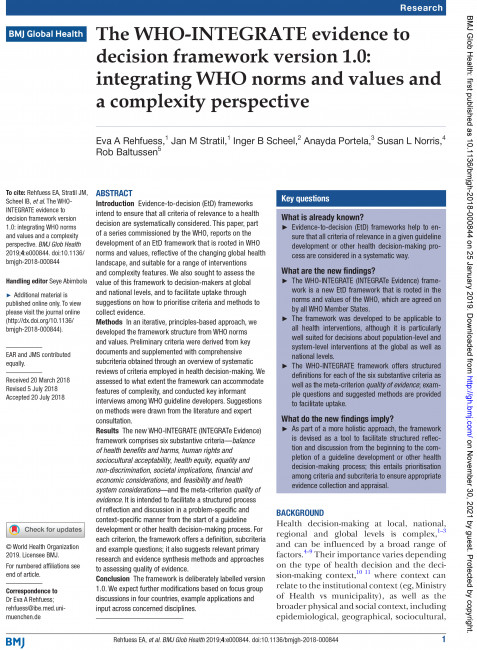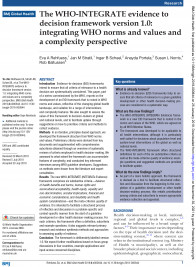Evidence-to-decision (EtD) frameworks intend to ensure that all criteria of relevance to a health decision are systematically considered. This paper, part of a series commissioned by the WHO, reports on an EtD framework that is rooted in WHO norms and values, reflective of the changing global health landscape, and suitable for a range of interventions and complexity features. We also sought to assess the value of this framework to decision-makers at global and national levels, and to facilitate uptake through suggestions on how to prioritise criteria and methods to collect evidence.
The new WHO-INTEGRATE (INTEGRATe Evidence) framework comprises six substantive criteria—balance of health benefits and harms, human rights and sociocultural acceptability, health equity, equality and non-discrimination, societal implications, financial and economic considerations, and feasibility and health system considerations—and the meta-criterion quality of evidence. It is intended to facilitate a structured process of reflection and discussion in a problem-specific and context-specific manner from the start of a guideline development or other health decision-making process. For each criterion, the framework offers a definition, subcriteria and example questions; it also suggests relevant primary research and evidence synthesis methods and approaches to assessing quality of evidence.
The framework is deliberately labelled version 1.0. We expect further modifications based on focus group discussions in four countries, example applications and input across concerned disciplines.



